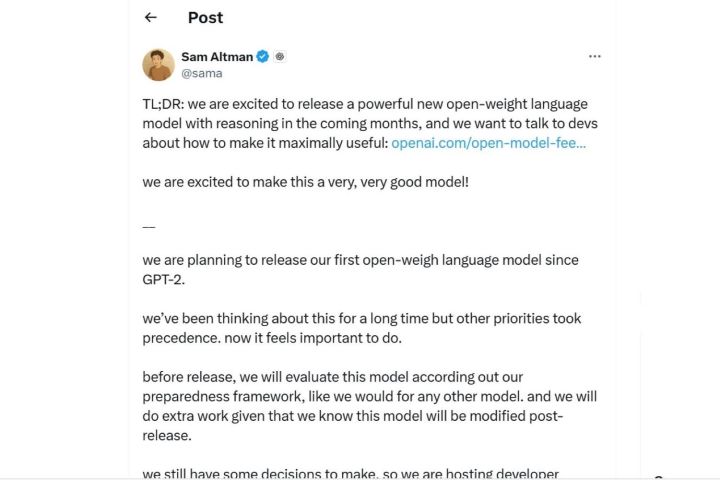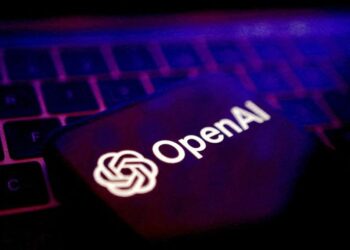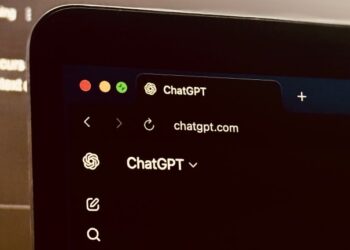Select Language:
OpenAI is poised to become a prominent player in the open-source AI space, as CEO Sam Altman announced on X that the company will soon launch an “open-weight” model that users can operate on their own.
“We are thrilled to introduce a new open-weight language model featuring enhanced reasoning capabilities in the upcoming months,” Altman stated in a post on X.

This strategic decision aims to keep pace with the Chinese company DeepSeek, which has captured attention with its R1 reasoning model since its launch in January. Additionally, Meta’s Llama models have attracted considerable interest within developer circles, as noted by Wired.
Altman’s announcement comes on the heels of a Reddit AMA in February where he expressed that OpenAI was “on the wrong side of history” and highlighted the necessity to revamp the company’s open-source approach.
In his post, Altman elaborated that the concept for the open-weight model has been carefully considered, stating, “it feels critical to take this step now.”
During the previous AMA session, OpenAI’s chief product officer, Kevin Weil, hinted at the possibility of making some of the company’s older, less advanced models available as open-source, though he did not specify which models might be included. There’s speculation that OpenAI developed a distinct model to demonstrate its capability to train AI efficiently and affordably, much like DeepSeek.
Altman has also created a link for developers to register and gain early access to the model, emphasizing that those who sign up will have chances to participate in OpenAI-hosted events and get early versions of the new model.
As we delve deeper into various AI models, it becomes clear that they are not entirely open source. While the code may be accessible through repositories, numerous aspects like training data and proprietary information remain concealed.
This is why the term open-weight is being adopted for AI models, in contrast to the more traditional open-source label used by companies like DeepSeek, Meta, and now OpenAI.






